IDENTIFYING RESTORATIVE HEALTH PRACTICES TO GIVE VOICE, ACCOUNTABILITY AND HEALING VALUE FOR ABORIGINAL AND TORRES STRAIT ISLANDER FAMILIES/COMMUNITIES IN Healthcare settings such as THE NEW UNIVERSITY OF CANBERRA PUBLIC HOSPITAL
This project intends to infuse the characteristics of strength and resilience of Aboriginal people into a Restorative Health Care framework for enabling Aboriginal voice in hospital practice, governance and consumer engagement processes- it is hoped the outcomes from this research will be incorporated into the new University of Canberra Public Hospital, due to open in 2018.
The 2017 Prime Minister’s ‘Closing the Gap’ Report reveals that efforts to reduce healthcare inequity have failed to meet 6 out of 7 targets, leading to his comment, “we must do things differently.” This research seeks to address suffering experienced by First Australians from a failure to close the health equity gap. At the core of this project is the intent that Aboriginal peoples’ voices are heard in the hospital setting.
The historical harms perpetrated within hospitals and other institutions associated with racism and colonisation, as well as the distrust engendered by brutal separations of children from their families, disproportionate levels of Indigenous incarceration, and deaths from suicide continue to tragically frame the healthcare relationships of many Indigenous Australians. These problems are compounded by negative cultures within the health system that may limit Indigenous voice. These relational issues of identity, trust and equity contribute to existing and potential communication barriers. Communication failings are the primary cause of over 70% of sentinel events resulting in death or serious injury to patients; and given the prevalence of harmful cultures of bullying in Australian healthcare organisations - it is therefore imperative to find new ways to work.
Our objective is to introduce restorative healthcare practice as part of an ACT ‘restorative community’ to the new University of Canberra Public Hospital due to open in 2018. We seek to create an environment of cultural safety for not only First Australians who will benefit from the services, but Indigenous healthcare workers and other vulnerable people. We believe that by meeting the needs of the most vulnerable - we help everyone. This project intends to infuse the characteristics of strength and resilience of Aboriginal people into a Restorative Health Care framework for enabling Aboriginal voice in hospital practice, governance and consumer engagement processes.
THE RESTORATIVE APPROACH AND HOW WILL IT MAKE A DIFFERENCE?
Indigenous and non-Indigenous leaders, nurses and midwives at the University of Canberra are collaborating with external researchers to support the ACT to become a ‘restorative’ community, joining an international restorative learning community. Our shared vision is to apply ‘Restorative Healthcare Practice’, a strengths based relational approach, centred on giving voice, respect , acknowledgement, accountability and healing value to the most vulnerable to benefit Indigenous people.
The project aims to join traditional Yarning Circle methodology to modern corporate governance of the UC Public Hospital, to enable Aboriginal voices to resonate in the hospital setting and create a ‘restorative’ environment. Our approach is to use ‘Yarning Circles’ to hear and privilege Aboriginal voices that will inform our inquiry into work undertaken in Whanganui, New Zealand. Whanganui Health Board has accelerated a narrowing of the gap in Maori health inequality by using Restorative Practices, which they define as “a philosophy, in action, that places respectful relationships at the heart of every interaction. This relational approach is grounded in beliefs about the equality, dignity and potential of all people and about the just structures and systems that enable people to thrive and succeed together” (2014). Eleven outputs from this project will provide the justification for, implementation of and evaluation plan for ‘Restorative Healing Practice’.
Read more here....
http://www.canberra.edu.au/research/collaborations/ciri/uc-ciri-projects/restorative-health
